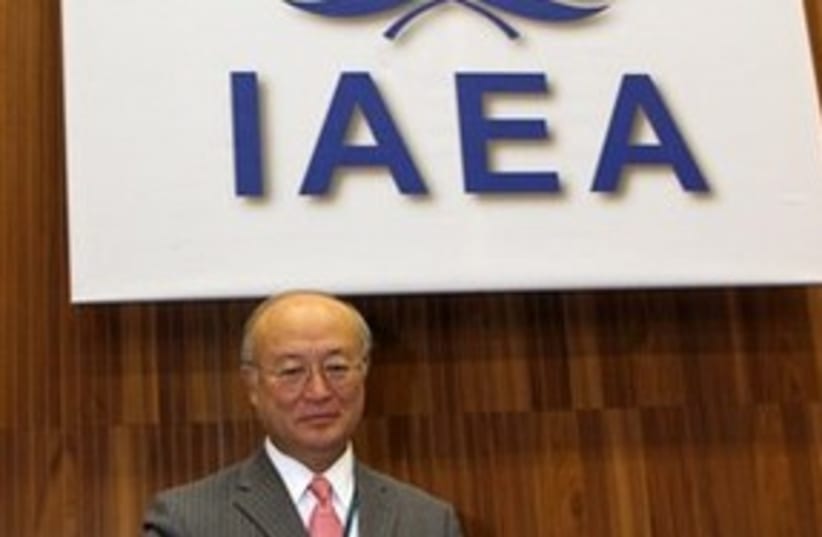RELATED:Dutch deliver banned nuclear equipment to Iranian groupIran's nuclear chief acknowledges espionage at facilitiesWhen asked why the IAEA ordered the equipment even though it is illegal under EU law to supply such a device to Iran’s Atomic Energy Organization, the IAEA spokesman wrote: “Sorry, can’t add more.I would, however, caution against assuming that the equipment is from the Netherlands, which is a major transportation hub.”The IAEA website’s Press Room responded to the Post report under the headline “IAEA on news report on equipment purchase for Iran.”The Post obtained a copy of a letter written by Dutch Economic Affairs Minister Maria van der Hoeven last week which stated: “That shipment contained a helium-leak detector, which was ordered by the International Atomic Energy Agency (IAEA) in line with its technical cooperation program with Iran, [but] was shipped to a banned recipient (AEOI).”The Atomic Energy Organization oversees Iran’s nuclear proliferation program.According to the IAEA website statement, IAEA Press Officer Ayhan Evrensel wrote, “The IAEA has ordered a helium- leak detector for a cancer-related project it is running in Iran. This project is called ‘Production, Development and Application of Radiation Sources and Radiopharmaceuticals for Radiotherapy and Targeted Cancer Therapy.’” Evrensel added that “The objective of this technical cooperation project (IRA/2/008) is to prepare therapeutic sources, radiocolloid particles and radiopharmaceuticals for cancer treatment, and it was approved by the IAEA Board of Governors in 2007.”The Dutch authorities jump-started an investigation to determine if the exporter of the helium-leak detector and pressure meter equipment for Iran’s sanctioned gas and oil sector faces criminal penalties.An IAEA spokesman declined to comment on whether the helium-leak detector has a military application, and whether the IAEA had asked that Iran’s Atomic Energy Organization return the device to the IAEA’s Vienna- based headquarters.
IAEA claims Iran delivery is for 'cancer therapy project'
After 'The Jerusalem Post' reported atomic agency broke EU sanctions, IAEA says helium-leak detector was for medical project approved in 2007.

RELATED:Dutch deliver banned nuclear equipment to Iranian groupIran's nuclear chief acknowledges espionage at facilitiesWhen asked why the IAEA ordered the equipment even though it is illegal under EU law to supply such a device to Iran’s Atomic Energy Organization, the IAEA spokesman wrote: “Sorry, can’t add more.I would, however, caution against assuming that the equipment is from the Netherlands, which is a major transportation hub.”The IAEA website’s Press Room responded to the Post report under the headline “IAEA on news report on equipment purchase for Iran.”The Post obtained a copy of a letter written by Dutch Economic Affairs Minister Maria van der Hoeven last week which stated: “That shipment contained a helium-leak detector, which was ordered by the International Atomic Energy Agency (IAEA) in line with its technical cooperation program with Iran, [but] was shipped to a banned recipient (AEOI).”The Atomic Energy Organization oversees Iran’s nuclear proliferation program.According to the IAEA website statement, IAEA Press Officer Ayhan Evrensel wrote, “The IAEA has ordered a helium- leak detector for a cancer-related project it is running in Iran. This project is called ‘Production, Development and Application of Radiation Sources and Radiopharmaceuticals for Radiotherapy and Targeted Cancer Therapy.’” Evrensel added that “The objective of this technical cooperation project (IRA/2/008) is to prepare therapeutic sources, radiocolloid particles and radiopharmaceuticals for cancer treatment, and it was approved by the IAEA Board of Governors in 2007.”The Dutch authorities jump-started an investigation to determine if the exporter of the helium-leak detector and pressure meter equipment for Iran’s sanctioned gas and oil sector faces criminal penalties.An IAEA spokesman declined to comment on whether the helium-leak detector has a military application, and whether the IAEA had asked that Iran’s Atomic Energy Organization return the device to the IAEA’s Vienna- based headquarters.